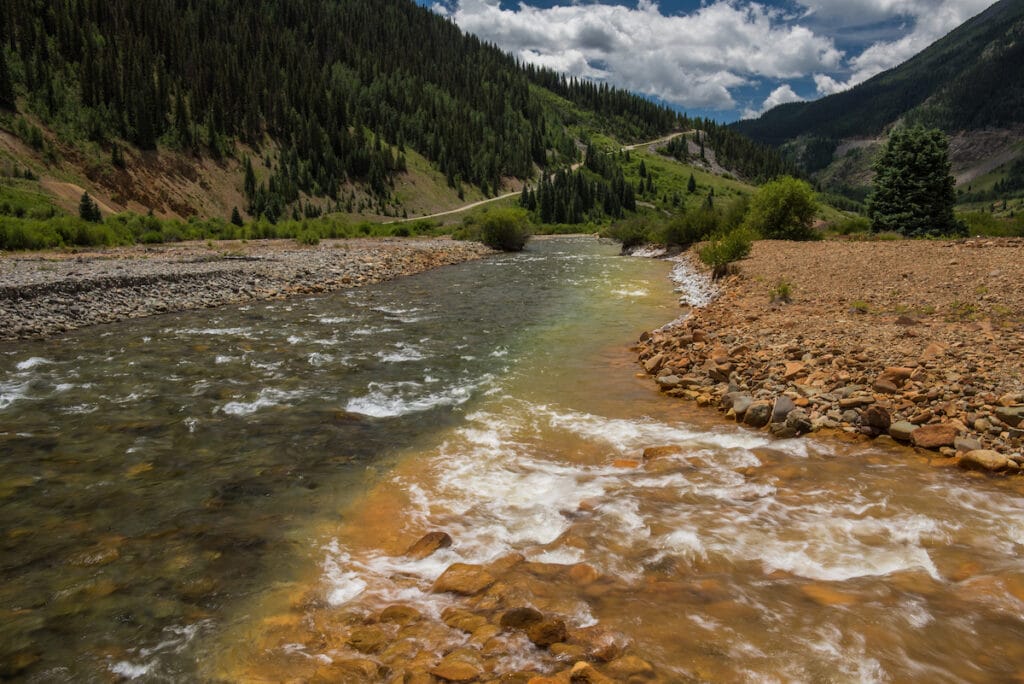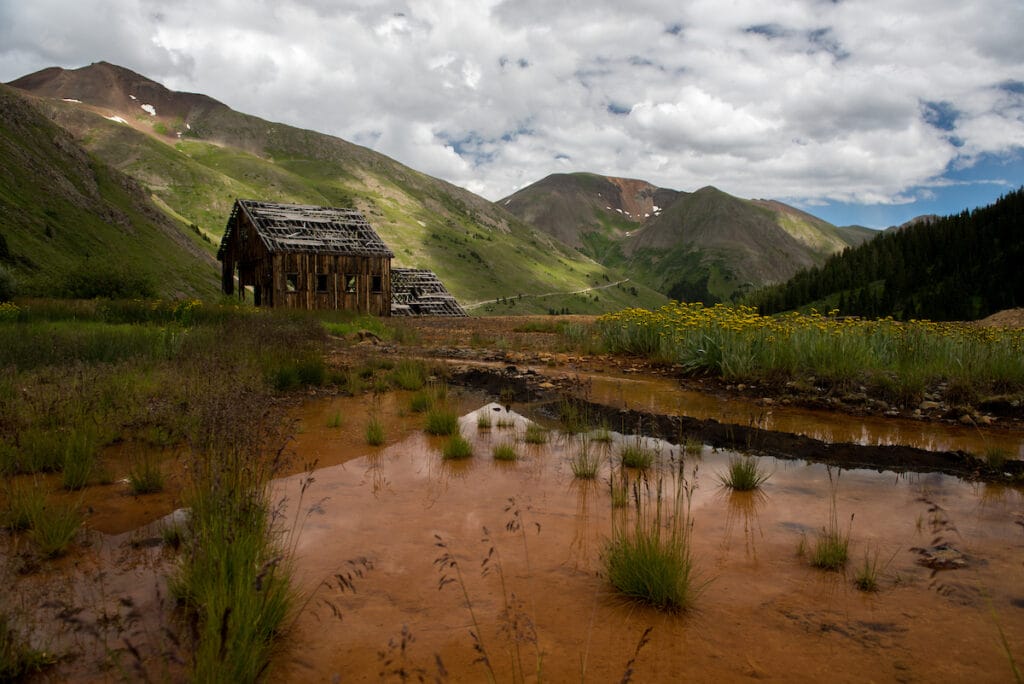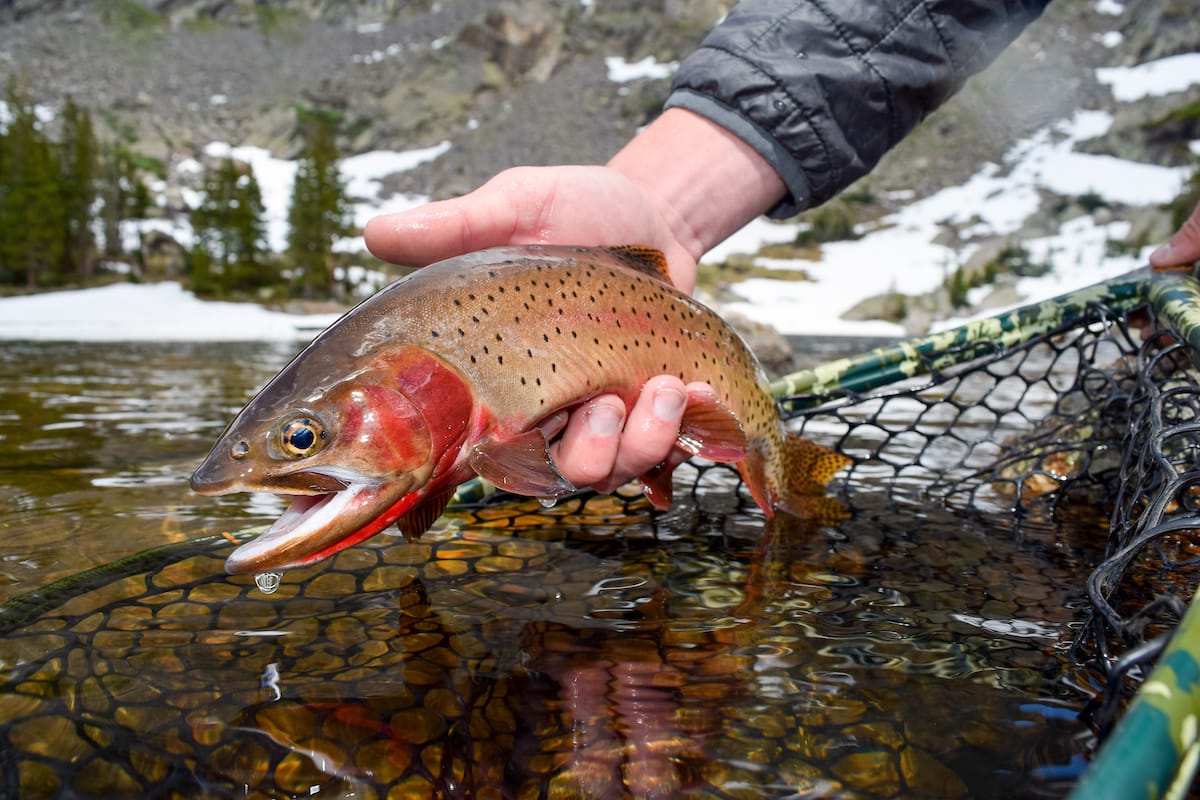Good Samaritan legislation advances key Senate committee with unanimous consent
To watch cable news, you might think that our country is hopelessly divided on partisan lines. If you work in conservation, though, you see that genuine bipartisanship is possible with a lot of hard work.
Today, the Senate Energy & Public Works Committee passed the Good Samaritan Cleanup of Abandoned Hardrock Mines Act of 2023 with unanimous consent, a fitting bipartisan advancement for a perfectly bipartisan bill: it has 28 co-sponsors evenly split between Republicans and Democrats.
The concept of this Good Samaritan legislation is one that we have worked toward for decades: Allow non-liable, third-party entities – think state agencies and NGOs like Trout Unlimited – to clean up point-source abandoned mine pollution that they had no part in creating. The catch, however, is that current law treats Good Samaritans as if they themselves are polluters, exposing them to crippling liability if 100% of Clean Water Act standards cannot be achieved.

The idea is to not let the perfect become the enemy of the very good: we know how to reduce and virtually eliminate the toxic runoff leaching out of abandoned mines through cost-effective measures appropriate for their often-remote locations and small footprints. This will reduce pollution into nearby streams, but where full Clean Water Act standards may not be able to be met, liability protections are essential in order for projects to move forward. The alternative is to allow toxic pollution to continue polluting the environment – unabated – day after day, year after year, with no end in sight.
A prime example is the abandoned Lilly Orphan Boy Mine in the Little Blackfoot watershed near Helena, Montana. Here, the Montana DEQ and TU removed toxic mine waste from a floodplain and restored habitat along Telegraph Creek, which runs through the mine-impacted landscape. However, the project partners are not able to treat acid mine drainage flowing from the shuttered mine, and today, Telegraph Creek remains on the state’s list of impaired waters due to heavy metals, including arsenic and lead.
Put simply, there is a basic policy choice before Congress: pass Good Sam and get to work cleaning up places like Telegraph Creek or allow acid mine drainage to continue to pollute streams that could otherwise be made more swimmable, fishable and drinkable.

The Good Samaritan Law creates a pilot program of 15 sites where cleanups can happen without years of legal wrangling and perpetual liability exposure. However, it’s taken years of advocacy, negotiating and compromise to get to this point with the legislation. This marks the first time since 2006 that a version of the concept has passed out of committee, and that doesn’t happen without a lot of behind-the-scenes hard work with legislative staff and partner organizations to get to such a bipartisan result.
Our staff lead on this effort has been Corey Fisher, public lands policy director for TU, who has been coordinating efforts between partners, Congressional staff and a team of TU staff dedicated to advancing Good Samaritan legislation.
“The Good Samaritan bill will make our waters cleaner and communities healthier,” Fisher said. “Good Samaritans have the know-how and expertise to safely clean up abandoned mine pollution – all we need is a little help from Congress. Today is a big step forward and we look forward to working with the bill sponsors and members of Congress on both sides of aisle to get Good Sam across the finish line.”
Learn more about our efforts to clean up abandoned mine pollution at www.tu.org/goodsam.



